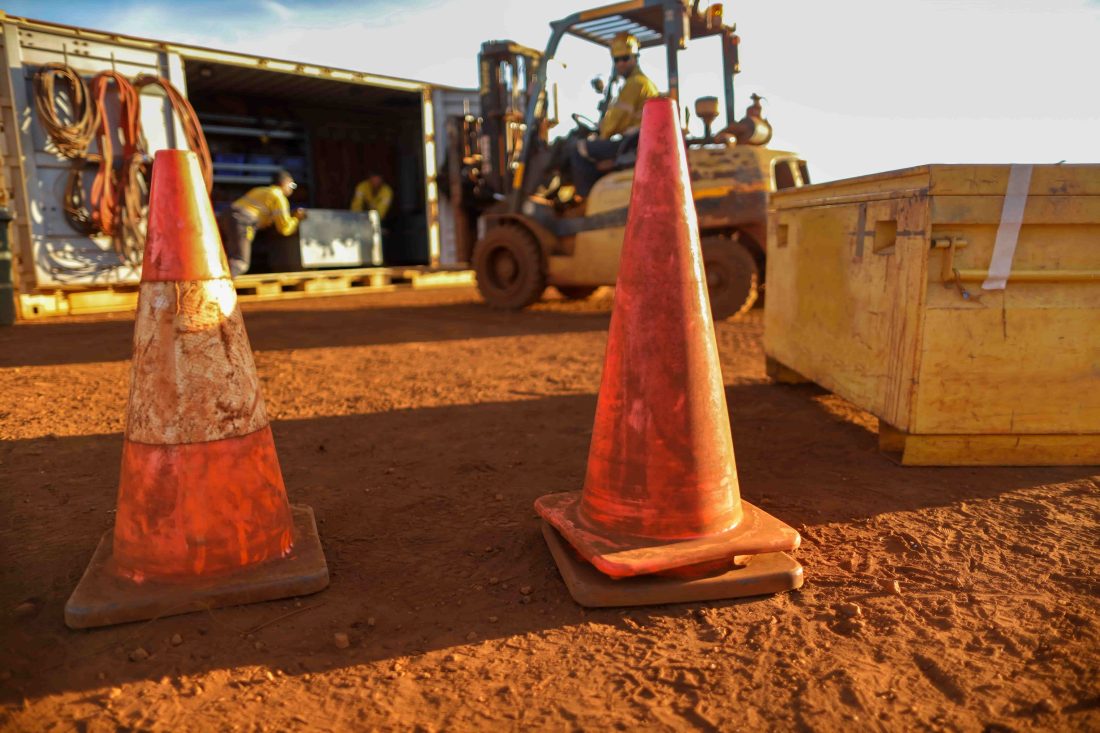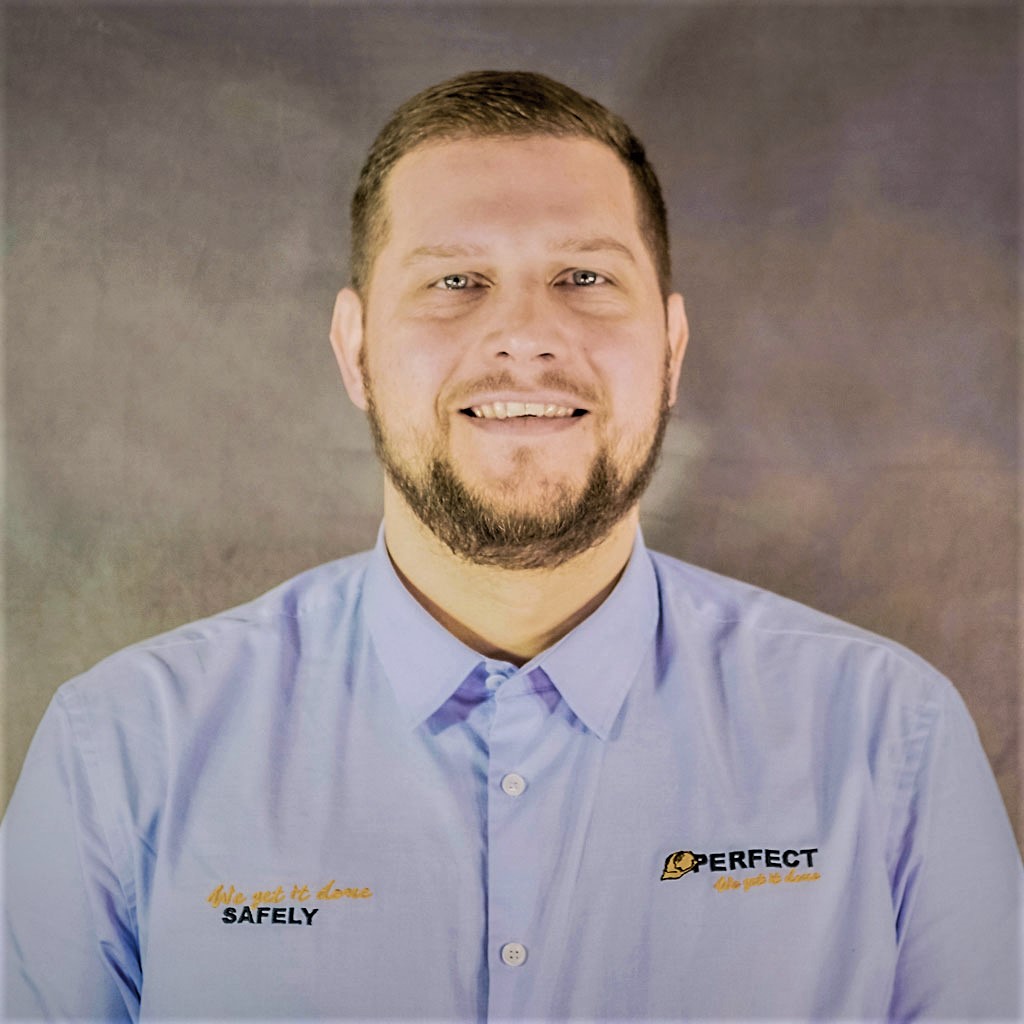Most In Demand Construction Tickets 2023
- magda

The construction industry in Australia is booming and the demand for workers is expected to rise over the next few years. Construction is the third-largest employer in Australia, accounting for around one in ten jobs. It’s also one of the fastest-growing sectors in terms of employment demand, with many more vacancies than qualified candidates. According to Master Builders Australia, some 300,000 new and skilled workers will be needed over the next five years. The increase in construction projects has caused the demand for skilled construction professionals to surge in Australia. Several initiatives have contributed to this increase including the Government’s investment in rail and road infrastructure, as well as various home building initiatives. Demand for building trade workers is influenced by the level of activity in the construction, housing, and building industry, as well as by economic conditions across sectors, and as such, the demand for construction trade workers is stronger than ever. This makes construction not only a good sector to be in if you’re qualified, but also a good one to get into through getting the construction tickets that are in demand. The most in-demand construction tickets in Australia are EWP and forklift operators, truck drivers, dogmen and riggers, hoist operators, rail industry workers and so on.
The White Card
The entry level ticket to work on a construction site in Australia is the General Safety Induction Card, also known as the White Card due to its colour. It serves as proof that workers have a basic understanding of health and safety precautions on a work site. White cards were designed to help maintain safety in the workplace. According to SafeWork Australia, the construction industry suffers from the third-most worker fatalities each year after the transport and agriculture industries. Close to one out of five work-related fatalities occurs on construction sites. With the proper training, individuals receive up-to-date health and safety advice and methods for dealing with work site hazards.
The induction course provides a foundation of knowledge and skills for preventing workplace injuries and fatalities. Workers learn more about the most common risks and how to avoid them or reduce the risk. Besides helping to protect workers, training is mandatory as no construction sites in Australia can be accessed without the White card and it is also a prerequisite for almost all other construction licences.
Issued after a one day course, the white card training package introduces future construction workers to the industry. Covering safety, specialised safety gear called PPE, site expectations and general working conditions – the white card course costs about $200, runs for six hours and has an examination at the end. It can be completed online but attending a physical training session will give more employment options. You can get the White Card licence from Edway Training, Licences for Work or any other SafeWork certified training providers.
Time: 1 day
Cost: $200
Prerequisites: None
Traffic Control
This construction ticket means you can work as part of a traffic management team, controlling the flow of traffic on gazetted roads and around job sites. The role involves traffic diversions around earthworks and excavation, cranes and lifting, fabrication and other construction specific tasks. It includes designing and implementing Traffic Management Plans [TMP’s] to reduce the hazards of vehicle and foot traffic around construction practices. You can get the Traffic Control licence from Licences for Work or any other SafeWork certified training providers.
Time: 1 day
Cost: $210
Prerequisites: None
EWP Operator
Reaching high places on a construction site occurs in a few ways; with scaffolding, in a work box lifted by a forklift or a crane or with an EWP. EWP (Elevated working platform) is a telescoping device, hinged device or articulated device, or any combination of these devices, which is used to support a platform on which personnel, equipment and materials can be elevated to perform work. EWP operators are in very high demand through labour hire at the moment as it is a high-risk task and the licence can take up to a couple of days.
Coming in various sizes and designs, they are classified into two categories dependent on the height of the basket.
- A machine that lifts the operator from 11m+ is called the Over 11m EWP. Because of the sheer height, this is considered high risk work and like the forklift and hoist comes with an HRW licence. The course takes more than a day to complete.
- A machine that lifts the operator from 0m to 11m is called the Under 11m EWP. If taken alone this course takes a day to complete, but due to the crossover of information, when this course is packaged with the >11m course both qualifications take two to three full days. EWP operators are in very high demand through Labour Hire at the moment as it is a High-Risk task, and the licence takes a couple of days to get the ticket for.
EWPs come in various sizes and forms from scissor lifts to boom lifts to knuckle booms to cherry pickers and more. Some of the places you can acquire EWP licences from are EWPA, Licences for work, Edway Training or any other SafeWork approved training providers.
Time: 2 days for both
Cost: $700 for both
Prerequisites: White Card
Hoist Operator
Large multi-storey construction sites like skyscrapers often utilise hoists. These are no-frills elevators that quickly move workers, small machinery, and equipment to different levels of construction. These hoists require skilled operators to control them. A hoist operator will spend many hours in their elevator, answering radio calls requesting them at various floors to help keep the job moving forward. The HO ticket falls under the High Risk Work licence umbrella, meaning that there is extra risk involved in the job. It has a special card bearing the NSW government logo that must be carried at all times.
The Personnel and material hoists (HP) licence class allows you to operate a hoist in which personnel, goods and/or materials may be hoisted, and which comprises a car, structure, machinery, or other equipment associated with the hoist, and which may be either a cantilever hoist, a tower hoist, or a multiple winch operation. You can get the Hoist operator licence at Cobra Training .
Time: 2 days
Cost: $800
Prerequisites: White Card
Forklift Operator
Forklifts are used to transport goods and equipment across construction sites. The Forklift truck (LF) licence class allows the operator to operate a forklift truck, equipped with a mast and an elevating load carriage with a pair of fork arms or other attachment. This is a highly demanded construction ticket as it can be used in Logistics, Manufacturing, Construction and a raft of other industries. Similar to the HO licence, LF is a high risk ticket and hence, requires the HRW licence.
Th LF licence class cannot be used for an order picking forklift truck. The Order-picking forklift truck (LO) licence class allows you to operate an order picking forklift truck where the operator’s controls are incorporated and elevate with the load carriage/lifting media. You can get the forklift operator licences (LF and LO) at Licences for work.
Time: 2 days
Cost: $450
Prerequisites: None

Truck Driver
Some construction sites are so big they need trucks just to get across site. Other sites need trucks to go and get supplies. Either way, a truck licence is an extremely valuable qualification to hold. Licences are categorised by Gross Vehicle Mass [GVM] in the following ways:
- Trucks from 0t to 4.5t GVM – car license only required.
- Trucks and buses from 4.5t GVM to 8t GVM; buses with 11+ passengers – Light Rigid licence
- Trucks and buses from 8t GVM+ with single rear axle; trailers less than 9t GVM – Medium Rigid licence
- Trucks and buses from 8t GVM+ with dual or tri rear axle; trailers less than 9t GVM – Heavy Rigid licence
- Articulated vehicles with dual or tri rear axle; trailers more than 9t GVM – Heavy Combination licence
- Articulated vehicles with dual or tri rear axle; multiple trailers more than 9t GVM – Multi Combination licence
Ascending the truck licence ladder occurs in stages. For example, in addition to passing the tests, the requirement for an HC licence [semi-trailer] is to hold an MR or an HR licence for at least one year. The requirement for holding an MR licence is to hold a car licence for at least one year and a HR licence is to hold a car licence for two years. Therefore, the fastest you can obtain an HC licence is two full years. This is because driving a heavy vehicle brings extra hazards that driving cars do not. You can get the truck licences at All Truck Driver Training, or Driver Training NSW. It can take up to take several weeks to obtain a truck licence.
Time: Licence level dependant
Cost: Licence level dependant
Prerequisites: Car licence
Dogging
The person that safely attaches the load to a crane is a called a dogman. This licence class allows the dogman to carry out work involving the application of slinging techniques to sling a load (including the selection and inspection of lifting gear) and/or the directing of a crane/hoist operator in the movement of a load when the load is out of the operator’s view. You cannot lift an object with a crane without one. Larger construction sites will have several cranes that all require dogmen. Or a mobile crane and dogman may travel across the city doing several lifts a day.
The dogging course is a HRW ticket that takes five days and costs about $1500. It will teach you all you need to know about the mathematics of lifting; the practical use of chains, slings, shackles & ropes; and the methods of communication with a crane operator. You can get the Dogging licence at Safety Australia Training, Sydney Construction Training School, Tower Crane Training and On the Job Training.
Time: 1 week
Cost: $1250 – $1500
Prerequisites: White Card
Rigging
Rigging work is the use of mechanical load shifting equipment (and associated gear) to move, place or secure a load using plant, equipment or members of a building or structures to ensure the stability of those members, or the setting up or dismantling of cranes or hoists. This construction ticket allows you to install products at height that have been lifted into place by a crane. You must get the dogging licence before you can progress to the rigging classes.
There are 3 classes of rigging work.
Basic rigging (RB)
This class includes dogging work and allows you to carry out rigging work involving:
- movement of plant and equipment
- structural steel erection
- hoists (including mast climbing hoists)
- precast concrete members of a structure
- safety nets and static lines
- perimeter safety screens and shutters
- cantilevered crane loading platforms
Excludes additional rigging work included under Intermediate and Advanced rigging.
Intermediate rigging (RI)
This class allows you to carry out all basic rigging work plus rigging involving:
- cranes, conveyors, dredges and excavators
- tilt slabs
- hoists with jibs and self-climbing hoists
- demolition of structures or plant
- dual lifts
Excludes rigging work involving equipment listed below under Advanced rigging.
Advanced rigging (RA)
This class allows you to carry out all intermediate rigging work plus rigging that involves:
- gin poles and shear legs
- flying foxes and cableways
- guyed derricks and structures
- suspended and fabricated hung scaffolds.
You can get the Basic, Intermediate and Advanced Rigging licences at Cobra Training.
Time: 1 week
Cost: $1500 – $2000
Prerequisites: White Card, Dogging
Telehandlers
Generally relegated to larger construction sites, the telescopic goods handler, or Telehandler, is a 4WD, four wheel steer machine with an extendable boom [telescopic] and multiple attachments. These range from buckets for moving earthen material to forks for moving pallets to a jib with its own winch to act like a crane. The Telehandler Ticket/Telehandler Licence unit describes a participant’s skills and knowledge required to conduct telescopic materials handler operations in the Resources and Infrastructure Industries. This Licence unit is appropriate for those working in operational roles. You can get the telehandler licence at Cobra Training.
A boom-type elevating work platform high risk work licence is also required when operating a telehandler fitted with a personnel box with operating controls in the box and the boom length is 11 metres or more.
Time: 1 day
Cost: $600
Prerequisites: White Card
Rail Industry Worker Card
Working in a live rail environment presents its own challenges and therefore requires specialised training. The Rail Industry Worker (RIW) Card Program aims to provide a single national competency management system for Rail Industry Workers. The program helps to meet regulatory requirements, comply with national rail safety legislation, and facilitates the potential for competency alignment in the future between rail operators nationally. A RIW card links to your RIW profile and assures Network Operators, Principal Contractors, and other rail contractors that you are fit, qualified and competent to work in rail. You can use your RIW card to swipe onto a worksite, where your RIW profile is checked for compliance in real time against the site requirements set by the rail Network Operator or Principal Contractor. You can get the RIW card by applying through the Rail Industry Worker website.
Time: 1 day
Cost: $500 with Cat 3 Medical
Prerequisites: White Card
Asbestos Removal
Asbestos was being used in construction for a century all around Australia. Although banned in 2000, many buildings still contain it. There are also many cases of asbestos waste simply being buried. Holding an asbestos removal qualification allows you to safely remove and dispose of it.
There are 2 types of asbestos removal licence.
- Class A friable asbestos – you can remove any amount of friable asbestos, asbestos-containing material and asbestos-contaminated dust or debris. You’re also able to apply for a Class A licence with a condition that you can only remove fire doors and safes.
- Class B non-friable asbestos – you can remove any amount of non-friable asbestos or asbestos-containing materials.
Time: 2 days each for Class A and B, 4 Days for Combo
Cost: Class B (non-friable) – $400; Class A (friable) – $700; Class A+B – $1000 Prerequisites: Class B – White Card; Class A – White Card and Class A
Working at Heights
As the name suggests, this construction ticket allows further freedom during heights work operations using fall restraints. In construction, the definition of working at height is working where falling would mean someone or something would fall from one level to another. Technically, working on a 30cm step falls into this category so we must take it with a grain of salt. However, there are real risks associated with WAH – hence the qualification.
The training will teach you what equipment to use, how and when to use it, rigging and anchor systems, work positioning and fall arrest systems. You can get the WAH licence at Pinnacle Safety and Training.
Time: 1 day
Cost: $240
Prerequisites: White Card
Confined Spaces
Construction sites often have many areas deemed confined spaces that are hazardous and require special certification to work in. The full definition is:
An enclosed or partially enclosed space that:
- is not designed or intended to be occupied by a person
- is, or is designed or intended to be, at normal atmospheric pressure while any person is
- in the space; and
- is or is likely to be a risk to health and safety from:
- an atmosphere that does not have a safe oxygen level, or
- contaminants, including airborne gases, vapours and dusts, that may cause injury
- from fire or explosion, or
- harmful concentrations of any airborne contaminants, or
- engulfment.
Due the risky nature of working in these areas, certification is required with a Safe Working in Confined Spaces qualification. The course takes a day, costs about $250 and will cover identification and mitigation of hazards associated with working in a confined space. You can obtain the confined space licence at Pinnacle Safety and Training and Licences for work.
Time: 1 day
Cost: $240
Prerequisites: White Card









